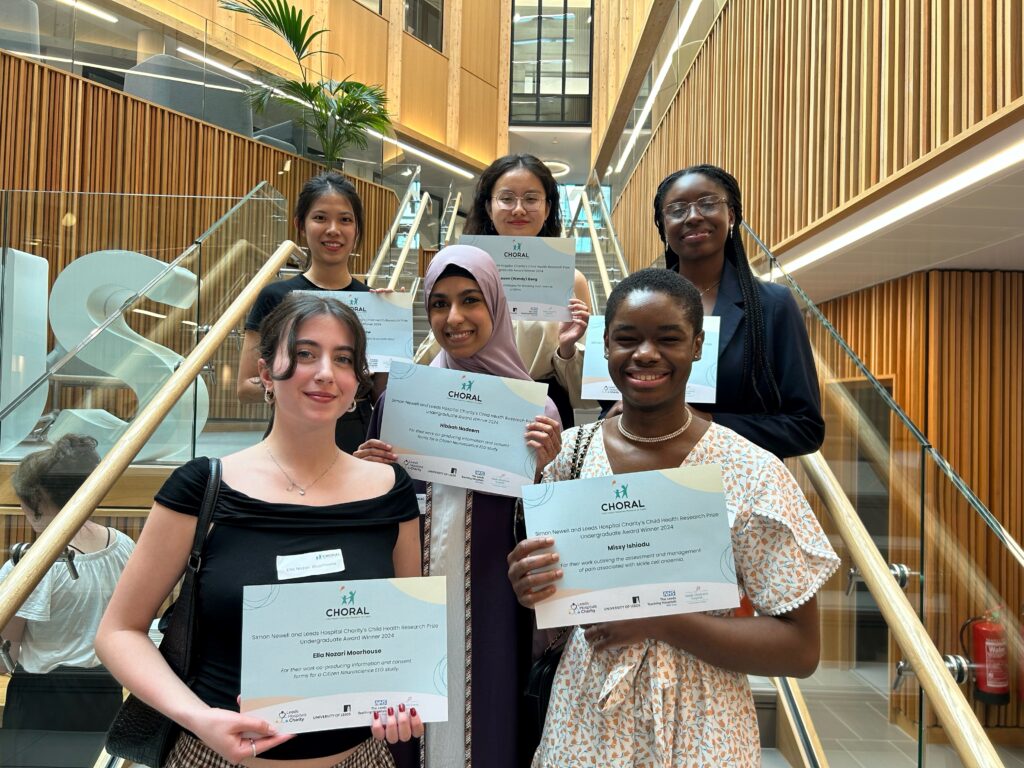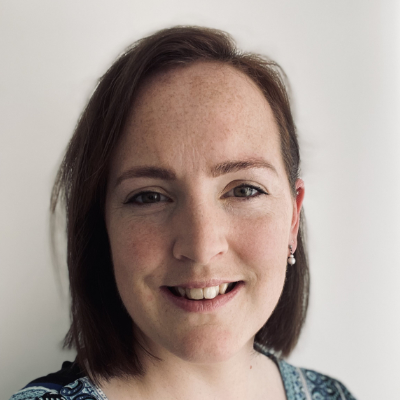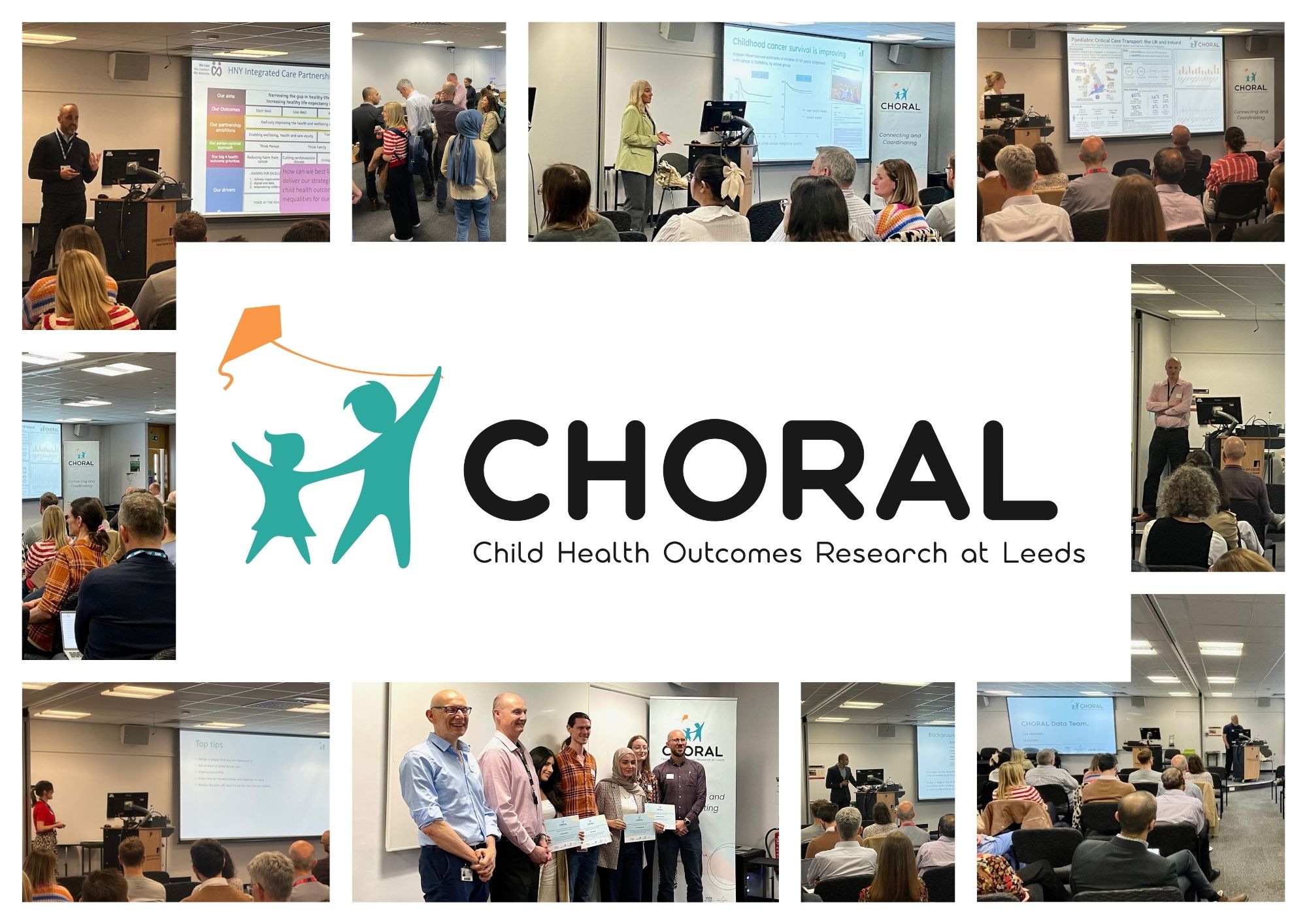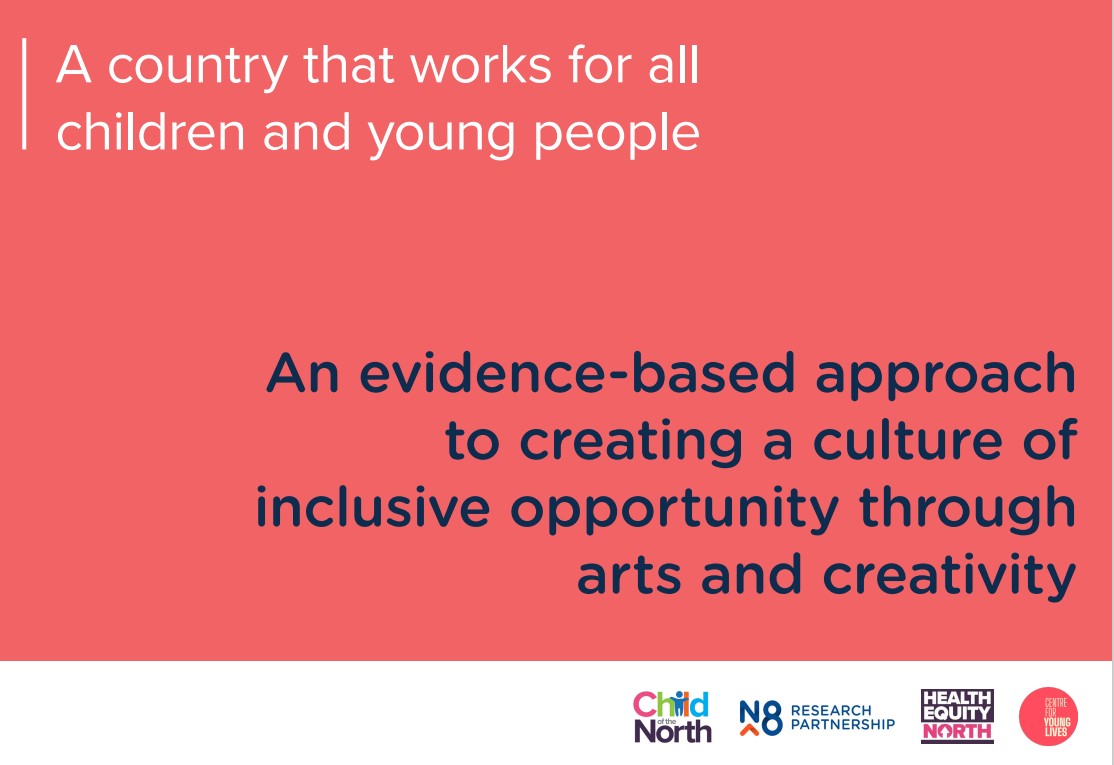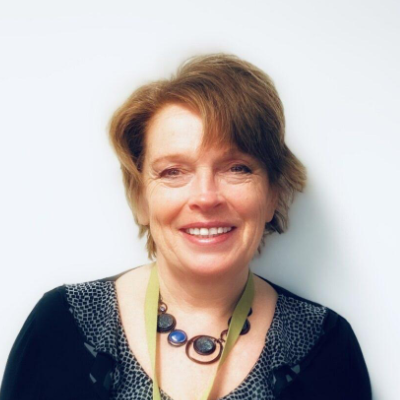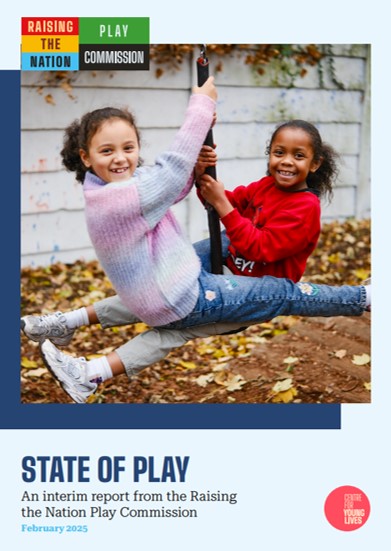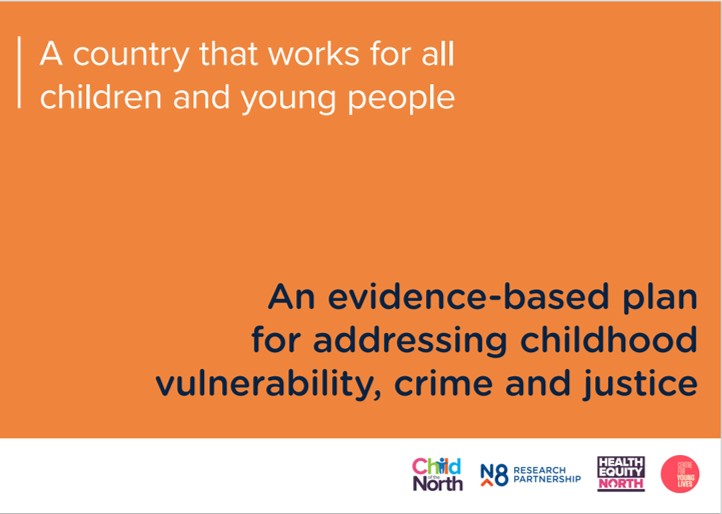Congratulations to the winners of the Simon Newell and Leeds Hospitals Charity Child Health Research Prize Undergraduate Awards, 2024. Brought to you by CHORAL.
The scheme invited applications from undergraduate students at the University of Leeds or an employee/placement student at Leeds Teaching Hospitals NHS Trust studying in a child health related undergraduate course.
The undergraduate awards were presented at the CHORAL Summer Gathering on Wednesday 26th June 2024.
If you are interested in the CHORAL award schemes or would like to sign up for future updates, please contact choral@leeds.ac.uk.
2024 Undergraduate Winners:
Emily Armstrong & Rhiane Berchie
Emily and Rhiane are 5th year medical students at the University of Leeds. Their winning work is a project undertaken as part of an Extended Student-led Research or Evaluation module at the university. Emily and Rhiane’s work is titled ‘What are the risk factors for residual hip dysplasia following Pavlik harness treatment for developmental dysplasia of the hip?’ and explored the risk factors statistically significant to a residual dysplasia diagnosis. This project allowed Emily and Rhiane to work in paediatric orthopaedic clinics at Leeds Children’s Hospital alongside experts in the field and led to valuable insights into a leading cause of early-onset osteoarthritis.
Zhuowen Geng
Zhuowen is a final-year medical student at the University of Leeds who spotted a gap in her learning relating to breaking bad news to children. Zhuowen recognised this as an important topic due to children being the most vulnerable group of patients with experiences of illness or the health care service being influential later in life. Zhuowen’s winning work is an essay titled ‘Breaking bad news to children: strategies for different age groups’. Zhuowen has aspirations of publishing this work and plans to extend the content further to make leaflets to help other medical students in this area.
Chelsea Xinyi Yow
Chelsea is a third year Biotechnology with Enterprise student at the University of Leeds. Chelsea’s winning work is a review article titled ‘Understanding MYCN in neuroblastoma: from oncogenesis to therapy’ which provides a comprehensive insight into the roles of MYCN amplification in neuroblastoma. Chelsea undertook this work as preparation for her final year research project due to her interest in improving the prognosis for childhood neuroblastoma.
Ella Nozari Moorhouse & Hibbah Nadeem
Ella and Hibbah are final year psychology students at the University of Leeds. Their winning work is reports detailing the co-production of information and consent forms for a Born in Bradford Citizen-Neuroscience EEG project. This work will be implemented into the Born in Bradford project which aims to gather neuronal data from 10,000 students across Bradford by engaging them in an EEG workshop. Both Ella and Hibbah recognise the importance of including the voices of young people in research which they have demonstrated through this work.
Missy Ishiodu
Missy is a final year child nursing student at the University of Leeds. During placement, Missy looked after a child with sickle cell anaemia, sparking an interest in this health condition. Missy’s winning work is a case study titled ‘Assessment and management of acute pain during an episode of sickle cell crisis’, which provides insight into the pathophysiology of the condition and an overview of the associated pain. Missy’s work also includes a critical analysis and evaluation of the local and national guidelines on acute pain assessment and management during a sickle cell crisis episode.
Michaella Macauley
Michaella is a first year healthcare student at the University of Leeds. Michaella’s winning work is an essay titled ‘In relation to a specific health care need, consider how well-being is promoted through holistic care’. Michaella’s work highlighted an important topic within healthcare and provided a comprehensive discussion of a complicated issue. Michaella also demonstrates aspirations of working with children with a passion for reminding people that hope should live on in the young people of generations to come.
